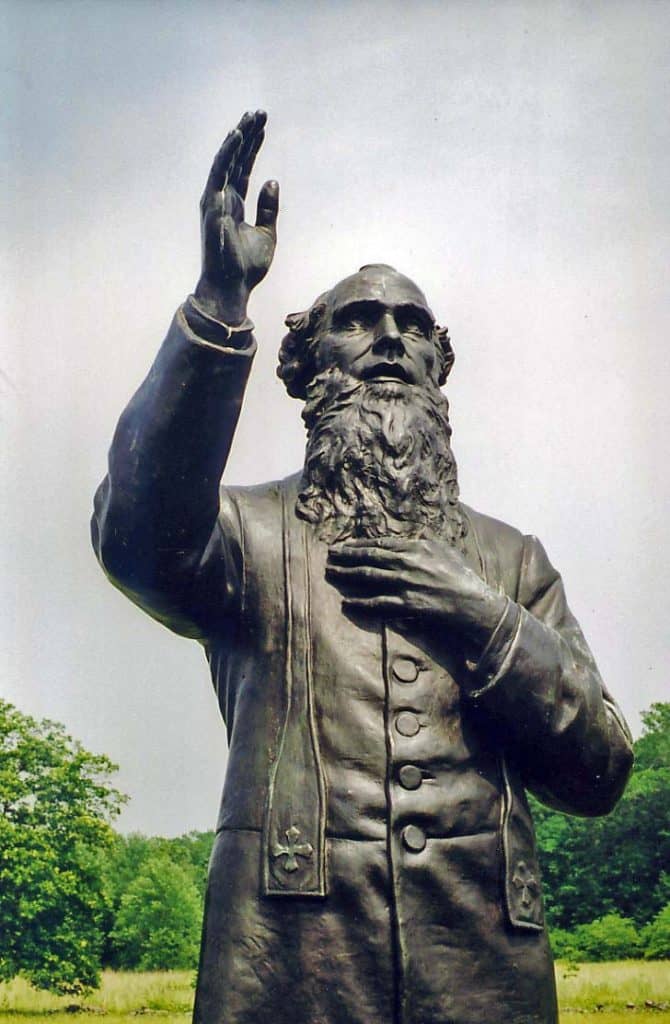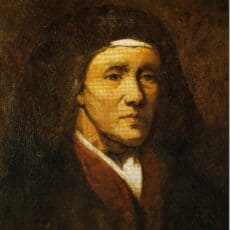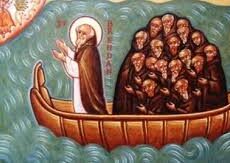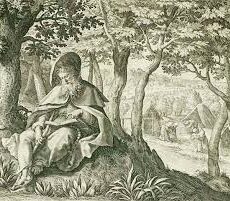
The Irish Brigade like many other Union army units hurried north to meet Lee’s army at Gettysburg, Pennsylvania. The Irish arrived on the second day of the battle and were positioned on Cemetery Ridge on the south end of the battlefield. Once there, Chaplain William Corby raised his hand to give general absolution to the assembled troops before the battle and minutes later many would be dead. In his words.
In performing this ceremony, I faced the army. My eye covered thousands of officers and men. I noticed that all Catholic and non-Catholic, officers and private soldiers showed a profound respect, wishing at this fatal crisis to receive every benefit of divine grace that could be imparted through the instrumentality of the Church ministry. Even Maj. Gen. [Winfield Scott] Hancock removed his hat, and, as far as compatible with the situation, bowed in reverential devotion. That general absolution was intended for all—in quantum possum—not only for our brigade, but for all, North or South, who were susceptible of it and who were about to appear before their Judge. Let us hope that many thousands of souls, purified by hardships, fasting, prayer, and blood, met a favorable sentence on the ever memorable battlefield of Gettysburg. The battle lasted three days and was the greatest of the war. A comparison between the battles of Gettysburg and Waterloo has frequently been made by various writers; the greater of the two is, very likely, that at Gettysburg.[1]
William Corby
As the second day of the battle started the brigade was ordered forward into the Wheatfield to help rescue General Sickles’ division that had gotten out of position. A nasty fight ensued and the Irish were driven back through the Wheatfield losing many of their men on their way back to the Union line. As the day ended the Irish were ordered to move north to the center of the Union line about 200 yards from Lee’s aiming point on the final day of the battle. As day broke on the 3rd of July Longstreet’s Corps led by Pickett’s Division attacked the center of the Union line commanded by General Hancock. The Irish poured in volleys of fire into the Confederate flank as it reached the Union line. To them it was payback for the hundreds of men of the Irish Brigade lost before the Confederate line on the heights of Fredericksburg. Lee’s attack failed and he withdrew his army heading back to Virginia, while the Irish counted their dead. The Irish Brigade lost nearly half of its strength in killed, wounded and captured. It would take months of recruiting and training before the Irish would fight again.
Father Corby would become the President of Notre Dame after the war and his statue on the Gettysburg battlefield is the only one of a non-general. A copy of the statue was also erected at the Notre Dame campus in South Bend, Indiana. To less than reverend students it’s called “Fair-catch Corby”, but to the soldiers at Gettysburg his raised hand was a powerful symbol that helped them move forward. After the battle, Corby recalled.
About a week after the battle, while on the march, a captain, a non-Catholic, rode up to me, and after an introduction by a friend, said: “Chaplain, I would like to know more about your religion. I was present on that awful day, July 2, when you ‘made a prayer,’ and while I have often witnessed ministers make prayers I never witnessed one so powerful as the one you made that day in front of Hancock’s corps just as the ball opened with one hundred and twenty guns blazing at us.” Just then I found use for my handkerchief to hide a smile which stole to my countenance caused by the, to me, peculiar phraseology in which the good captain expressed his mind. I could not but admire his candid, outspoken manner, though, and I gave him an invitation to call on me in camp, when I would take pleasure in giving him all the information in my power. One good result of the Civil War was the removing of a great amount of prejudice. When men stand in common danger, a fraternal feeling springs up between them and generates a Christian, charitable sentiment that often leads to most excellent results.[2]
William Corby
[1] Corby, 119.
[2] Corby, 120.




